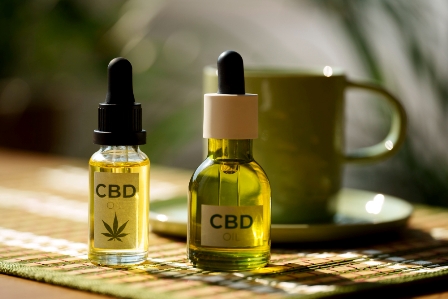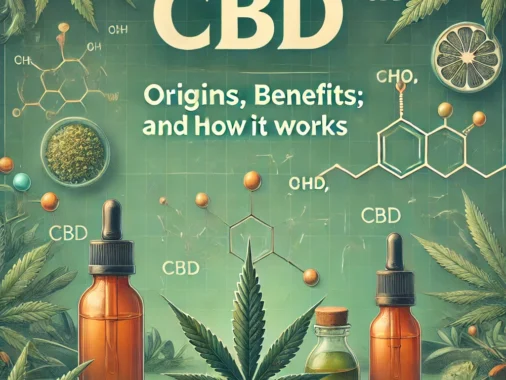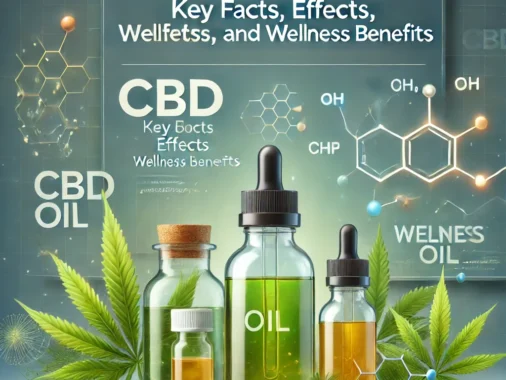Cannabidiol (CBD) and tetrahydrocannabinol (THC) are the two most prominent cannabinoids found in cannabis plants. While they share the same molecular formula (C₂₁H₃₀O₂), their atomic arrangements produce dramatically different effects on the human body. This in-depth guide explores their similarities, differences, medical benefits, legal status, and scientific research to help you understand these fascinating compounds.
CBD Molecule
Cannabidiol
THC Molecule
Δ9-Tetrahydrocannabinol
Key Differences Between CBD and THC
| Characteristic | CBD | THC |
|---|---|---|
| Psychoactive | No (non-intoxicating) | Yes (produces a “high”) |
| Legal Status (US) | Federally legal (2018 Farm Bill) | Federally illegal (Schedule I) |
| Primary Source | Hemp plants (≤0.3% THC) | Marijuana plants (>0.3% THC) |
| Medical Benefits | Pain relief, anti-inflammatory, anti-anxiety, anti-seizure | Pain relief, appetite stimulation, nausea reduction, muscle relaxant |
| Side Effects | Dry mouth, diarrhea, reduced appetite, drowsiness | Dry mouth, red eyes, memory impairment, increased heart rate |
| Drug Testing | Rarely detected (unless product contains THC) | Detected in standard drug tests |
| CB1 Receptor Binding | Indirect interaction (negative allosteric modulator) | Direct agonist (strong binding) |
Did You Know?
CBD and THC are both phytocannabinoids, meaning they’re cannabinoids produced by plants. The human body also produces endocannabinoids (like anandamide) that interact with the same endocannabinoid system (ECS) that CBD and THC affect. The ECS regulates crucial functions including sleep, mood, appetite, memory, and pain sensation.
Medical Applications Compared
Pain Management Comparison
CBD: Effective for neuropathic pain and inflammation through indirect activation of glycine receptors and TRPV1 channels. Studies show particular promise for arthritis and multiple sclerosis-related pain.
THC: More effective for nociceptive pain (tissue damage) through direct CB1 receptor activation. Demonstrated efficacy for cancer pain and spasticity in clinical trials.
Combined: Research suggests the “entourage effect” – CBD and THC together may provide superior pain relief at lower doses than either alone, with reduced side effects.
Anxiety Treatment
CBD: Shows significant anxiolytic properties in human and animal studies. Reduces anxiety at doses of 300-600mg without sedation. May benefit PTSD, social anxiety, and OCD.
THC: Low doses can reduce anxiety, but higher doses often increase anxiety and paranoia. Chronic use may worsen anxiety disorders in some individuals.
Note: CBD appears to counteract THC-induced anxiety when both are present, highlighting the importance of balanced ratios in medicinal cannabis products.
Neurological Disorders
CBD: FDA-approved as Epidiolex for rare seizure disorders (Dravet syndrome, Lennox-Gastaut syndrome). Research ongoing for Parkinson’s, Alzheimer’s, and Huntington’s diseases.
THC: May help with spasticity in multiple sclerosis (nabiximols). Shows neuroprotective properties in preclinical models, but psychoactivity limits therapeutic use.
Mechanism: Both compounds demonstrate antioxidant and anti-inflammatory effects that may protect neurons from damage and degeneration.
Other Therapeutic Applications
CBD: Promising for acne (reduces sebum production), substance abuse treatment (modulates reward circuitry), and diabetes prevention (anti-inflammatory effects on pancreas).
THC: Effective for chemotherapy-induced nausea/vomiting (dronabinol, nabilone), appetite stimulation in HIV/AIDS (marinol), and glaucoma (reduces intraocular pressure).
Emerging: Both show anticancer properties in lab studies, though human clinical evidence remains limited.
Market Growth Statistics
The global CBD market is projected to grow from $4.9 billion in 2021 to $47.22 billion by 2028 (CAGR of 32.9%). Meanwhile, the legal THC market (medical and recreational cannabis) is expected to reach $73.6 billion by 2027, demonstrating rapid mainstream acceptance of both compounds.
Chemical Structure and Pharmacology
While CBD and THC share the same molecular formula (21 carbon atoms, 30 hydrogen atoms, and 2 oxygen atoms), their different atomic arrangements lead to distinct pharmacological profiles:
Key Pharmacological Differences
- Receptor Affinity: THC directly binds to CB1 receptors in the brain (producing psychoactive effects) and CB2 receptors (immune effects). CBD has low affinity for both but modulates their activity indirectly.
- Enzyme Inhibition: CBD inhibits cytochrome P450 enzymes (affecting drug metabolism), while THC does not significantly impact these enzymes.
- Anandamide Levels: CBD increases anandamide (the “bliss molecule”) by inhibiting its breakdown, while THC mimics anandamide by binding to its receptors.
- 5-HT1A Activation: CBD activates serotonin 1A receptors (contributing to its anti-anxiety effects), while THC has minimal effect on this system.
Legality and Drug Testing
The legal landscape for CBD and THC continues to evolve rapidly:
U.S. Legal Status
CBD: Federally legal if derived from hemp (≤0.3% THC). FDA prohibits adding CBD to food or making unapproved health claims. State laws vary – some restrict CBD sales.
THC: Federally illegal (Schedule I). 37 states have legalized medical cannabis, 18 allow recreational use. Federal prohibition creates banking and research challenges.
European Regulations
CBD: Legal in most countries when extracted from EU-approved hemp strains. Novel Food authorization required for ingestible products. THC content limits vary by country (typically 0.2%).
THC: Medical cannabis programs exist in many countries. Recreational use decriminalized in some (Portugal, Netherlands) but remains illegal in most. Switzerland allows <1% THC cannabis.
Worldwide Perspective
CBD: Legal in most countries with varying restrictions. Some (like China) prohibit all cannabis extracts regardless of THC content.
THC: Canada and Uruguay have fully legalized. Israel has advanced medical programs. Many Asian and Middle Eastern countries impose severe penalties for possession.
Research Limitations
Despite growing interest, cannabis research faces significant barriers. In the U.S., THC remains Schedule I (“no accepted medical use”), requiring researchers to use government-grown cannabis that differs from commercial products. This has slowed clinical studies compared to CBD, which saw accelerated research following the 2018 Farm Bill.
Side Effects and Safety Profile
Understanding potential adverse effects is crucial for informed use:
Safety Comparison
CBD: Generally well-tolerated even at high doses (up to 1,500mg daily in studies). Most common side effects are mild (dry mouth, drowsiness, diarrhea). No recorded fatal overdoses. May interact with blood thinners, antidepressants, and other medications.
THC: Can cause short-term memory impairment, coordination problems, increased heart rate, and anxiety/paranoia at high doses. Chronic heavy use may be associated with cannabis hyperemesis syndrome and (in adolescents) potential increased risk of psychiatric disorders. Fatal overdose extremely unlikely.
Important: Both compounds may affect medication metabolism through cytochrome P450 interactions. Consult a healthcare provider before combining with prescription drugs.
FAQs About CBD and THC
No, CBD does not produce intoxicating effects like THC. While both are cannabinoids, CBD doesn’t bind strongly to CB1 receptors in the brain that create the “high” associated with THC. Some users report feeling relaxed with CBD, but this isn’t accompanied by cognitive impairment or euphoria.
Pure CBD shouldn’t trigger a positive result on standard drug tests that screen for THC metabolites. However, many CBD products contain trace amounts of THC (especially full-spectrum products), which could potentially accumulate with regular use and lead to a positive test. If drug testing is a concern, look for broad-spectrum or isolate CBD products with third-party testing showing 0% THC.
Yes, many users combine CBD and THC for enhanced therapeutic effects (the “entourage effect”). CBD may mitigate some unwanted THC effects like anxiety and rapid heart rate. Medical cannabis products often feature specific CBD:THC ratios (like 1:1 or 20:1) tailored for different conditions. Start with low doses when combining cannabinoids.
Both may help sleep through different mechanisms. THC decreases sleep latency but may reduce REM sleep. CBD may improve sleep quality by addressing underlying causes like anxiety or pain. Low-dose THC (2.5-5mg) combined with CBD (10-25mg) appears most effective for sleep in clinical observations, though individual responses vary.




